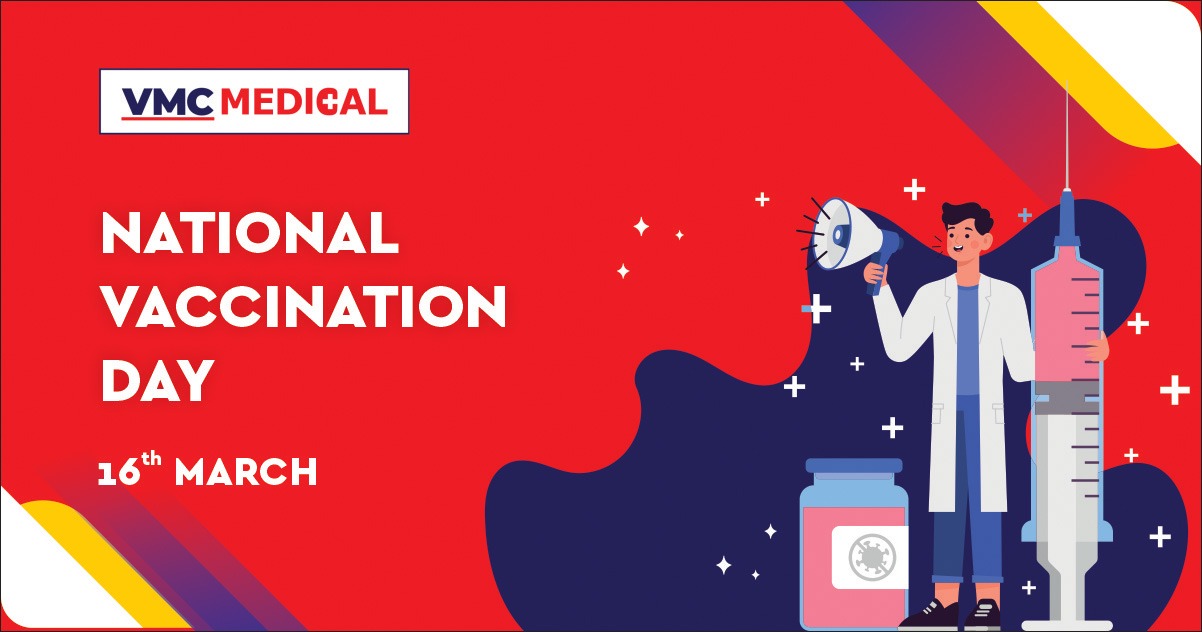All You Need to Know About National Vaccination Day!
 Posted On
Posted On
344 total views, 2 views today
The 16th of March is designated as National Vaccination Day each year. This day emphasizes the value of vaccination and its contribution to public health. The first dose of the oral polio vaccination was administered in India on this day in 1995. The best way to avoid extremely contagious diseases is through vaccination or immunization.
What is Vaccination?
A quick, safe, and efficient way to prevent serious illnesses before you become ill is through vaccination. It strengthens your body’s natural defences against specific infections while boosting your immune system. With vaccinations, your immune system is taught to make antibodies, just as it does when it is exposed to a disease. Yet, as vaccinations only contain inactivated or weakened strains of bacteria or viruses, they do not really spread disease or raise the likelihood that you will experience its symptoms.
The World Health Organization (WHO) states that “immunization is a proven method for controlling and eradicating infectious diseases that are life-threatening. The improvement of public health and life expectancy standards as well as the enhancement of social and economic effect at the local and national levels depend heavily on vaccination.
History behind National Vaccination Day!
Vaccinations have been used for many centuries. Research suggests that the Chinese started using smallpox vaccinations around 1000 A.D. Before it reached Europe and the Americas, even the Turkish and African populations practiced it.
After injecting a 13-year-old kid with the vaccinia virus (cowpox) in 1976, Edward Jenner is regarded as the father of vaccination after the boy showed immunity against smallpox. The first smallpox vaccine was created in 1798, and major vaccination campaigns against the disease in the 18th and 19th century helped to eradicate it in 1979. The cholera and inactivated anthrax vaccines were created as a result of experiments by Louis Pasteur, and the plague vaccine was also created in the late 19th century. The BCG vaccination, which is still used today, was one of the more developed bacterial vaccines between 1890 and 1950. The ideal way to render the tetanus toxin inert with formaldehyde was discovered by Alexander Glenny in 1923. This technology was also used to create the diphtheria vaccine in 1926.
Salk and Sabin polio vaccines were developed as a result of viral tissue culture techniques created between 1950 and 1985. Owing to mass inoculation, polio is practically eradicated in many nations internationally.
In the last two decades, vaccination research has advanced significantly, resulting in the effective development and production of recombinant hepatitis B and seasonal influenza vaccines. As technology improves, we’ll see therapeutic vaccines for conditions including allergies, autoimmune illnesses, and addictions.
2023 National Vaccination Day theme
Every year, a different theme is used to recognize World Vaccination Day. The main objective of National Vaccination Day is to raise awareness of the benefits of vaccination. This year’s National Vaccination Day theme has not been announced yet. However, the theme for the year 2022 was “vaccines work for all.”
Know the Significance of National Vaccination Day
On this day in 1995, March 16, India received its first dose of the oral polio vaccination. This year’s National Vaccination Day is remarkable since India has been fighting the CoVID-19 pandemic since it came with the largest vaccination campaign in the world.
- Vaccines save lives
Immunization campaigns and vaccines save lives. They are essential for leading a healthy life and advancing society and the economy.
- Remarkable feats of humankind
Undoubtedly one of the largest and most significant contributions made by humans is the discovery of vaccines. The accomplishments of medical science are honored on National Vaccination Day.
- A time to give thanks
National Vaccination Day is the perfect occasion to thank researchers, scientists, and healthcare personnel who ensure we are healthy. They put in endless effort to create vaccines that can save our lives.



